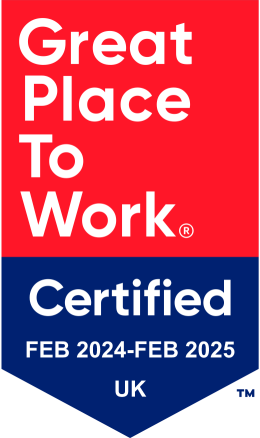20 November 2015 | Blog
The complexity of airline system migrations: minimising the risk to your passenger communications
20 November 2015 | Blog
The complexity of airline system migrations: minimising the risk to your passenger communications
Airline system migrations are hugely complex and, until we saw the recent success from American Airlines, would often end in disaster. However, to complete their migration successfully American Airlines had to bring in 1,900 extra staff just to smooth the transition to a single reservation system – the first stage of a larger PSS migration project.
Needing 1,900 extra staff gives an idea of the level of complexity and impact that this process has on an airline - but why is it so notoriously hard to migrate? What makes it such a complex process?
Much more than just switching one system for another, migrating to a new system means grappling with the complexities of architecting and migrating connections from hundreds of integrated systems and applications. At the same time, new bookings are pouring into the system and the whole airline is running ‘business as usual’.
To say it’s ‘keeping all the plates spinning’ would be an understatement. It’s keeping all the plates spinning…on the plane’s wing…while it takes off. As Chris Vukelich states in this Flightglobal article:
“The fundamental reason it’s not easy is [that] it is the business equivalent of taking out the brain of a human being, while they are laying on the table and you’re having a conversation with them.”
With such a hurdle to jump, having a nimble and specialist technology partner can help smooth the transition to reduce the risk of something going wrong. With 15 years’ experience in airline technology, 15below have helped many clients migrate to and from a wide range of reservation systems.
As a technology partner, how can 15below help minimise the migration risk on your passenger communications platform?
Risk 1: Platform downtime or compromised service whilst migrating
Migrating hundreds of integrated systems and apps is no easy feat. Somewhere along the line, you may experience downtime or compromised service whilst integrating your existing applications with your new reservation system.
As a specialist technology partner we ensure your 15below passenger communications platform maintains functionality while you migrate. How? By following a robust and well-tested process from requirements workshops and data mapping sessions to complete quality assurance and user acceptance testing.
Quality assurance plays a massive part in avoiding platform downtime, which is why we test and analyse in a controlled environment before you hit the switch.
Our rigorous and extensive testing period is our time to check all system behaviours run as expected and all possible scenarios are covered – making sure your requirements are fulfilled and you have the same (if not better) level of communication with your passengers.
Risk 2: Loss of or compromised PNR data
As mentioned above, migrating your system is no easy feat, especially when you have a high-volume, high-value, perishable product that is on sale 24/7. Changing or updating systems means data is at risk of going missing during the process – a risk to you, and your passengers when they find out they won’t be travelling anywhere.
The effect on your revenue and your brand can be immense. Inaccurate load factors and customer compensation costs are the least of your worries when passengers who have a particularly bad experience are willing to name and shame you publically.
The unified structure of the 15below platform means once your business and communication workflows are set up, that’s it. When you migrate to a new reservation system, we simply integrate with the data sources from your new system, rather than the old one. Essence is, we get things set up on the old system and working smoothly, and then it’s just a case of switching over and hooking into your new data sources on migration.
Risk 3: Cost of extra resource needed to help with migration
American Airlines brought on nearly 2,000 extra staff to help migrate their reservation system. A small cost so far in comparison to the extra C$40 million that Air Canada would have needed when they were looking to update systems in 2010 (Flightglobal).
15below is committed to providing both technical and consultative project management support during your migration. Along with your account manager, we assign a multi-skilled team compromising of business analysts, software engineers and quality assurance testers to your project. They’ll collaborate with you on everything from project scoping through to post-migration support, so you know you’re in safe hands.
Risk 4: Problems in other migration areas, meaning flight schedules are malfunctioning
Having helped our customers during their migration, we understand that it is a very public procedure and there is nowhere to hide when something does not go to plan. Sometimes challenges will arise during the migration process that mean flights are disrupted – leaving staff in a frenzy and passengers wanting answers.
It may not be the first thing on your mind, but ensuring your passenger communications platform is set up before you migrate is essential. Having a supportive communication provider already in place means you can be safe in the knowledge that you can keep passengers informed at the right time, and in the right way, even when disaster strikes.
We’ll help you keep calm and connected.
To find out more about 15below, and how we can help you during your migration, get in touch today.

